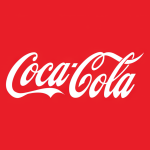Welcome to our dedicated page for Coca Cola Co news (Ticker: KO), a resource for investors and traders seeking the latest updates and insights on Coca Cola Co stock.
The Coca-Cola Company (NYSE: KO) is a total beverage company in the soft drink manufacturing industry, with products sold in more than 200 countries and territories. This news page focuses on company announcements that explain how Coca-Cola manages its global brand portfolio, its leadership, and its relationships with bottling partners and major event organizers.
Investors and followers of KO stock can use this feed to review earnings-related updates, such as quarterly results and outlook commentary, which the company reports through press releases and accompanying Form 8-K filings. These disclosures often include information on net revenues, operating income, earnings per share, unit case volume and value share trends across regions and beverage categories.
News from The Coca-Cola Company also covers corporate actions and governance, including CEO succession plans, board appointments and changes in operational leadership. Recent examples include the election of Henrique Braun as future Chief Executive Officer and the election of Max Levchin to the board of directors. Organizational updates related to digital transformation, such as the creation of a Chief Digital Officer role, are another recurring theme.
Readers will also find coverage of strategic transactions and partnerships, including refranchising steps involving bottling operations and agreements to sell stakes in bottlers like Coca-Cola Beverages Africa. In addition, Coca-Cola issues news about global marketing and sponsorship activities, such as the FIFA World Cup Trophy Tour by Coca-Cola, which highlights the company’s role in major sporting events and associated sustainability initiatives. For an ongoing view of how The Coca-Cola Company communicates its strategy, performance and brand activities, this KO news page provides a centralized stream of official releases.
Summary not available.
Summary not available.
Summary not available.
Summary not available.
Summary not available.
Summary not available.
Summary not available.
Summary not available.
Summary not available.
Summary not available.

